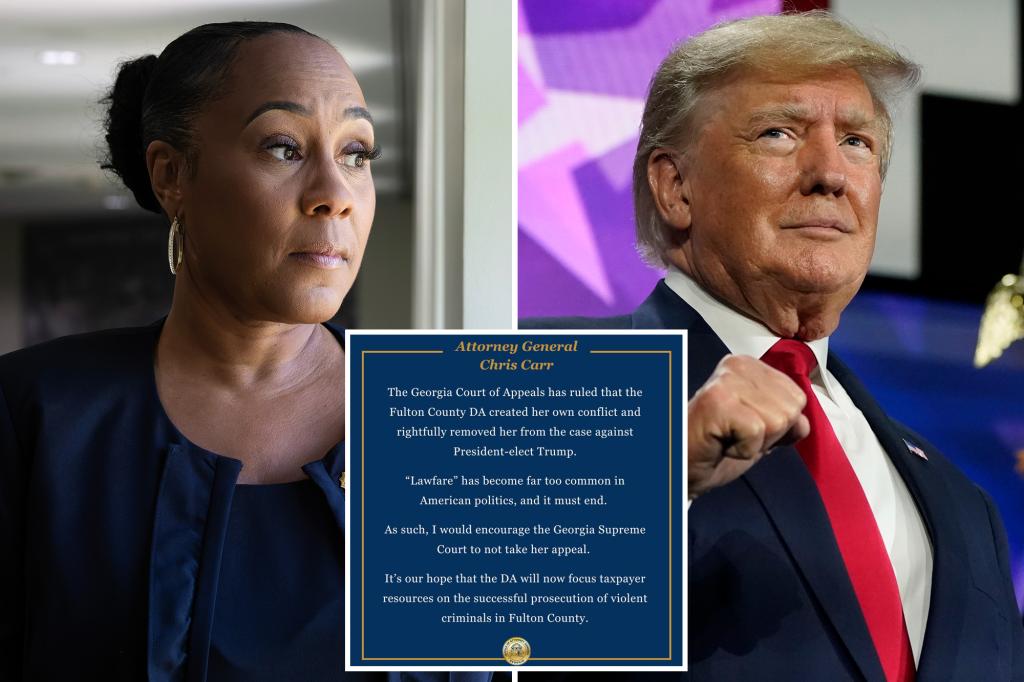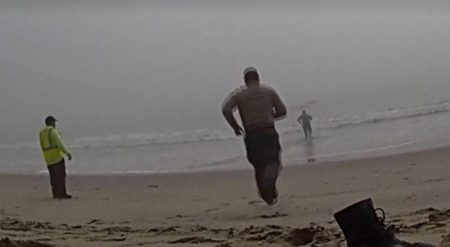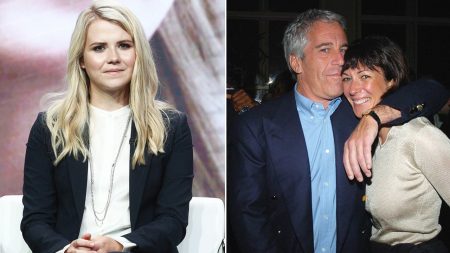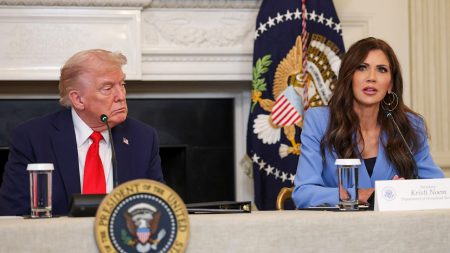The legal battle surrounding the 2020 election interference case against former President Donald Trump in Fulton County, Georgia, has intensified, marked by a clash between Fulton County District Attorney Fani Willis and Georgia Attorney General Chris Carr. The central issue revolves around Willis’s eligibility to prosecute the case, following a Georgia Court of Appeals ruling disqualifying her due to a perceived “significant appearance of impropriety.” This ruling stems from Willis’s relationship with Nathan Wade, a special prosecutor she hired and with whom she was romantically involved. The court’s decision has prompted a series of actions and counter-actions, transforming the legal proceedings into a high-stakes political drama.
The Georgia Court of Appeals’ decision hinges on Willis’s hiring of Wade and the subsequent extravagant spending allegedly undertaken by Wade, purportedly funded by his salary as a special prosecutor. Accusations have surfaced alleging that Wade spent a substantial sum, estimated at $654,000, on lavish gifts and trips with Willis, raising concerns about Willis potentially benefiting financially from her hiring decision. This perceived conflict of interest formed the basis of the Court of Appeals’ decision to disqualify Willis from the Trump case, arguing that her impartiality could be reasonably questioned. This disqualification has sparked a strong reaction from Willis, who has accused Carr of political motivations in his stance on the issue.
Carr has publicly urged the Georgia Supreme Court to reject Willis’s appeal of the lower court’s ruling. He characterized the legal maneuvering by Willis as “lawfare,” a tactic he argues has become increasingly prevalent in American politics. Carr’s statement emphasized the need for an end to such practices and encouraged Willis to redirect her attention and taxpayer resources towards prosecuting violent criminals in Fulton County. This public stance has further fueled the contentious relationship between the two officials, with Willis accusing Carr of attempting to influence the case for personal political gain.
Willis, in response to Carr’s statements, has accused him of attempting to influence a case in which he himself is a subpoenaed witness. She further alleges that Carr’s actions are driven by his gubernatorial aspirations, suggesting he is prioritizing his political ambitions over his duties as Attorney General. Willis has called on Carr to resign if he cannot separate his personal political goals from his official responsibilities. This escalating exchange of accusations underscores the deep divisions and high tensions surrounding the case, with both sides accusing the other of impropriety and political maneuvering.
The situation is further complicated by Carr’s recent announcement of his candidacy for the Georgia governorship in 2026, effectively positioning him against incumbent Governor Brian Kemp. This announcement lends credence to Willis’s accusations of political motivation, suggesting Carr’s actions may be influenced by his desire to bolster his political standing within the Republican party. The intertwining of legal proceedings with political aspirations adds another layer of complexity to the case and raises questions about the impartiality of the involved parties.
Adding to Willis’s challenges is a misconduct probe initiated by the Georgia State Senate related to allegations of misusing taxpayer funds in the Trump case. This investigation adds pressure on Willis and further complicates the legal landscape. Despite these controversies, Willis recently secured re-election to her position, indicating continued public support for her work. However, the ongoing legal battles and ethical questions surrounding her conduct continue to cast a shadow over her tenure and the prosecution of the Trump case. The outcome of these legal and ethical challenges will significantly impact the future of the election interference case and the political landscape in Georgia.











